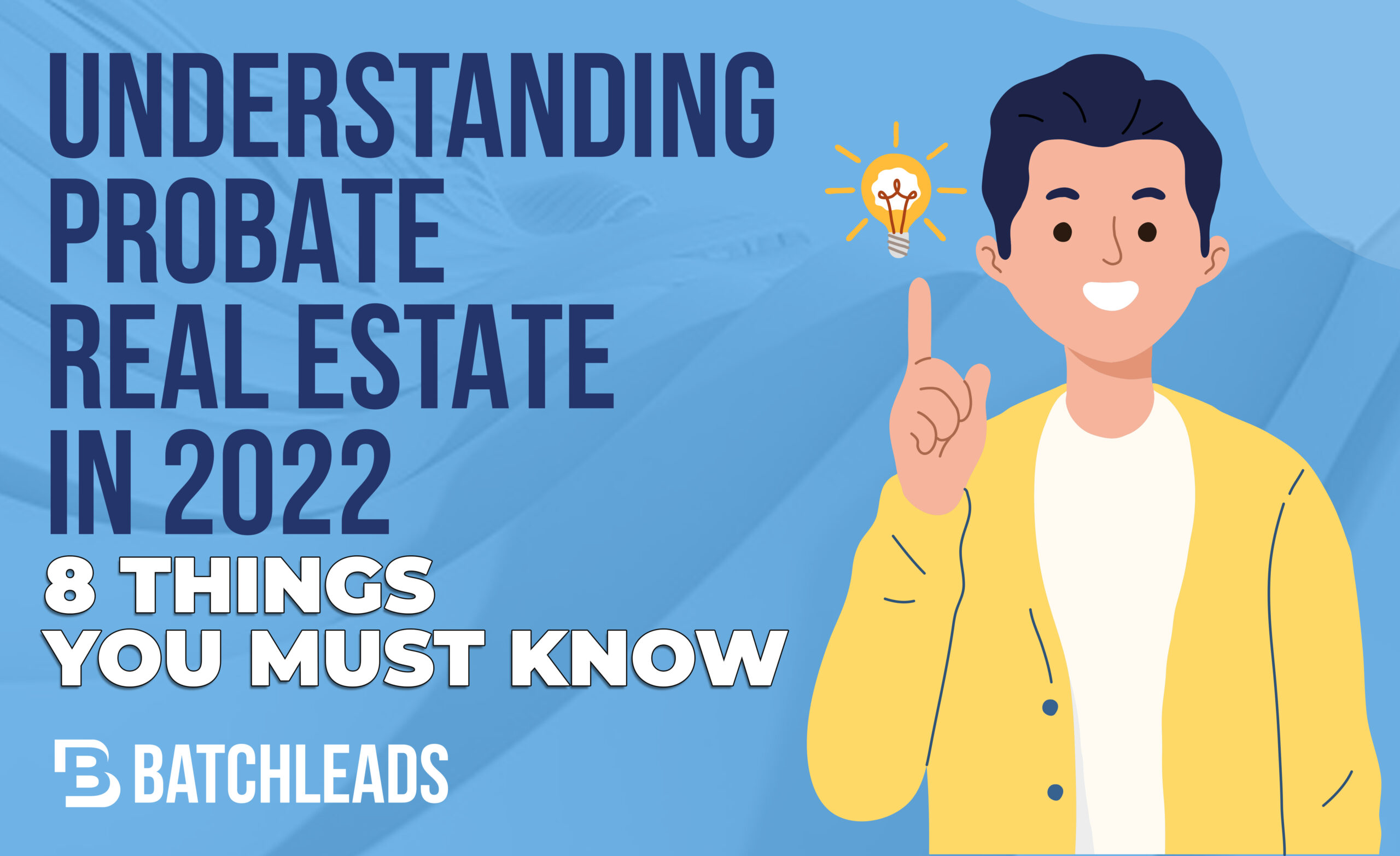If you’re an investor, you know how important it is to find the best selection of probate listing real estate prospects. In some ways, probate property investing is about quantity just as much as quality. Accessing an array of listings can help you understand your market, follow up with more leads, and ultimately make better investments. To achieve this, you need to have the right tools. Your investigative skills and negotiation savvy may not be enough to find the probate real estate listings you need. Learn how to get probate listings and seven other essential skills you need to take your investments to the next level in 2022.
What Is Probate?
If a person passes away and does not have a will directing the distribution of their assets, their estate will typically enter probate. Sometimes an estate enters probate even if a will exists. Probate is administering an estate by a court, but what is a probate listing? The court may include the sale of the property to settle the debts of an estate. Due to the court’s requirements, a probate listing can still pose a promising prospect to investors.
Court regulations are the first thing you must understand about probate real estate. These requirements vary based on what state you are in and the unique circumstances of each case. For example, the court may sometimes handle all offers made on a listing, but it may allow the estate’s representative to oversee the sale in other cases. Learn about the legal requirements in your state and the conditions of an individual case before you start investing in probate properties.
What Is Probate in Real Estate?
The second thing you should understand about probate is its role in the real estate market. Some investors mistakenly assume that probate listings are found from a separate, secret source, but that’s not the case. Like any other property, most probate properties are marketed and listed on real estate services
This relates to the third thing you must understand – how to set realistic expectations. You might see a probate listing on a real estate site and assume it will be a standard sale. On the contrary, any property in probate will likely take much longer than usual to close the deal due to the lengthy approval process required by the court.
Choosing properties carefully is the fourth item on your agenda. Choosing properties carefully is one of the most challenging skills to master. It’s easy to see a low price and jump at the opportunity to invest, but you should remember that a low price doesn’t mean it’s a good investment. The opposite may be true – a property priced suspiciously low may be more likely to have damage beyond the scope of a standard rehab project. It would be best to hone your ability to discern the difference between a promising investment and a potential money pit.
How Do You Find Probate Listings?
The fifth skill essential to real estate probate success is the ability to find listings. This may seem like a relatively straightforward task – log onto a home search site and start looking – but by the time a probate listing appears online, it has probably been on the market for a while. It would be best if you got a head start on pursuing leads, and you can do so when you have the right data and tools to work with.
One of the secrets that experienced investors might not tell you about is the power of a lead generation platform. This program works by gathering data across countless sources and presenting it to users in a streamlined, easy-to-navigate manner. This gives you the ability to see the probate list in your area and relevant contact information and geographical details. This information can help you connect with leads faster and understand your prospects better.
How Do You Purchase Probate Listings?
Drafting a compelling probate property offer is the sixth skill you need to hone. Before doing so, you should revisit your state and local requirements and any unique requirements of the case. After reviewing this information, you can proceed to draft an offer on a probate property. In most cases, prospective buyers must accompany their offer with a 10% deposit. The estate representative or the probate judge will review the offer and accept, counter, or reject. In many cases, this is done through a real estate agent who has been hired to represent the property and its estate.
If your offer is accepted, it’s time to play the waiting game.
The seventh and final thing you must understand about probate real estate is that it isn’t a get-rich-quick scheme. Savvy investors can indeed turn a significant profit on the right property, but patience is an essential component of this process. Probate may entail disputes between family members and lengthy delays while waiting for court approval, so you should plan for a closing period that could be six months or longer.
Key Takeaways
There are many ways to invest in real estate, but probate properties offer a uniquely promising – and challenging – opportunity. Investors looking to build their portfolio or get a property for a bargain may be attracted to a probate listing for these reasons. If you want to succeed, you’ll need more than just some basic investment skills. You’ll need a thorough understanding of your state’s probate requirements and a knack for choosing the right properties.
Luckily, these skills can be developed with practice and experience. The essential skill for success is the ability to find listings. Whether you’re a seasoned professional or brand new to real estate investing, you can take advantage of tools like a lead generation program that will help you see in-depth data about all probate properties in a given area.



